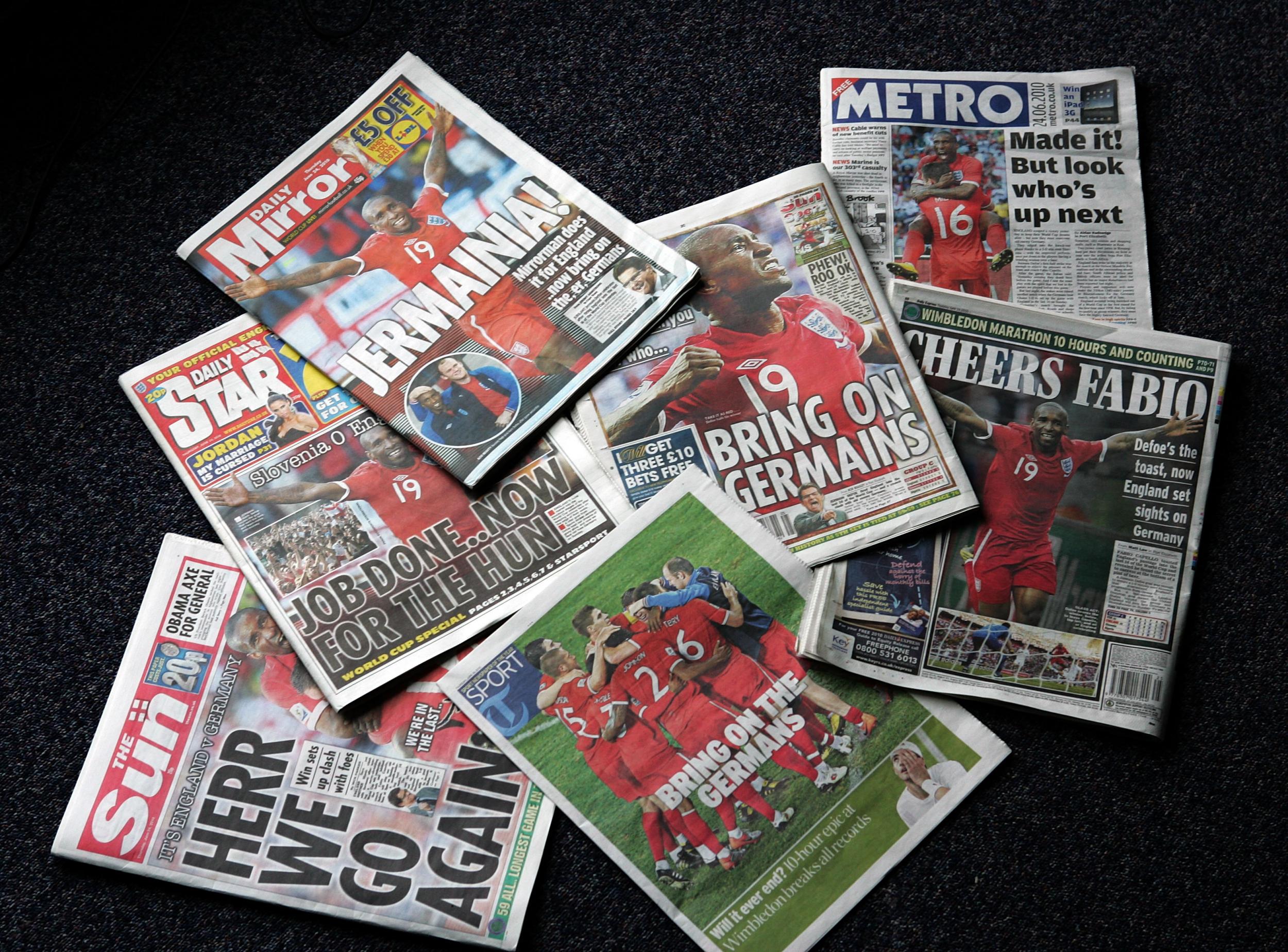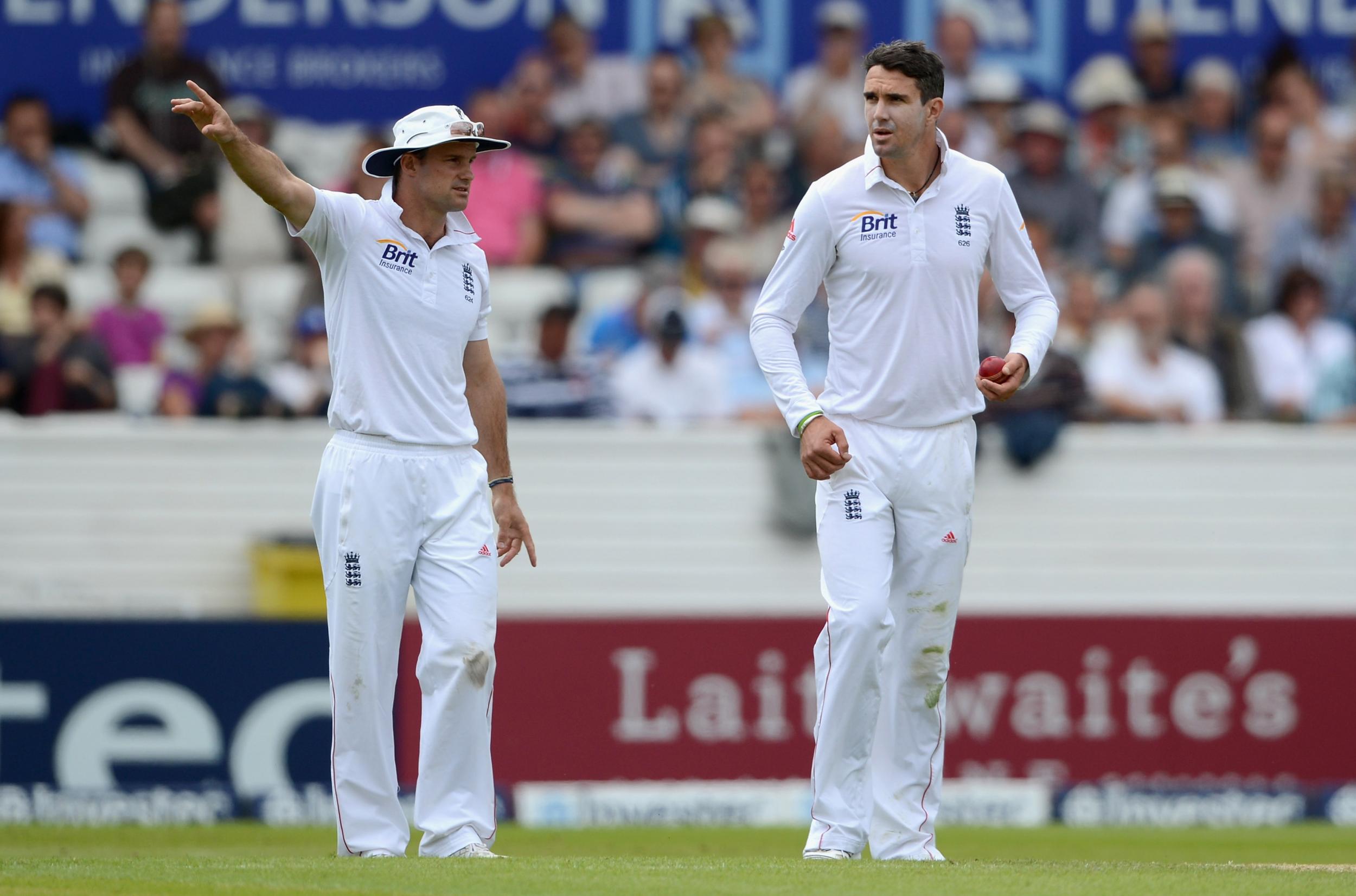Back-page scoop or beating the home drum? Just how far should the media go to overtly support its national teams?
The Australian press has been responsible for unsettling England during the Ashes with reports of ball-tampering and headbutts - but where is the boundary? And should the British media follow suit?

Three years ago, ahead of the World Cup in Brazil, a few of us were granted an audience in London with Jose Mourinho. Before long, somebody had invariably asked him what he made of England’s chances in the tournament.
Mourinho pondered for a few moments: not so much over his opinion, but whether he really wanted to divulge it. “England,” he said eventually, “is the kind of team where I am always expecting something good, but I am never surprised when things go wrong.
“In every country I know - especially my own country [Portugal] - people live football in a very emotional way. Normally, the press is critical, because everybody has an opinion. The moment the team is chosen and the competition is next door, everybody is together.
“No more critics. Everyone supports, even if you don't agree. Because for a month, the team is a team. I'm not so sure, with the mentality in this country [England], people are ready to go in this direction.”
Naturally, a little intellectual glissando may be necessary to overcome the heavy irony in Mourinho pointing the finger at someone else for generating a negative atmosphere or making needless criticisms. And yet there remains a good deal of truth in his words. When it comes to rallying as a nation behind a common cause - including, but not limited to international sport - then for some reason, we seem to struggle.
It amuses me when people say that this country has never been more polarised or divided. British society has always divided as easily as a zygote: peasant and landowner, Catholic and Protestant, cavalier and roundhead, town and country, Whig and Tory, Blur and Oasis, people who put the jam on the scone before the cream and the diabolical, hell-bound scum who do the exact opposite. Really, it’s a genuine miracle we’ve only had the one civil war.
For this reason, it has been something of an enlightening experience to travel around Australia for the last six weeks, as England’s cricketers have gradually been ground into the dirt by a combination of supreme fast bowling, alien conditions and Steve Smith’s mesmerising and unsettling appetite for runs. As well as, yes, the Australian media, whose role as a sort of binding glue in this Ashes triumph has been resolutely minor and yet deliciously overstated.

At which point, we should probably draw a subtle distinction between two different sorts of media jingoism. Patriotic drumming from the sidelines is one thing, and even if it occasionally verges on the crass, the tedious or the absurd, it is essentially benign. Witness the Daily Mirror’s front page on the morning of the Euro ‘96 semi-final against Germany - “ACHTUNG SURRENDER!” - in case you were under any illusions that this is something from which this country is immune.
But there is cheerleading, and then there is becoming - or at least attempting to become - an active participant in proceedings. And much of what has emerged from the Australian media over the course of the series has arguably skirted that boundary. What made the furore over Jonny Bairstow’s harmless “head-butt” of Cameron Bancroft in a Perth bar so noteworthy is that it was a story not merely reported, but generated by the media, via creative use of the stump microphone and a couple of tacit leaks.
Similarly, the substance-free accusation of ball-tampering against James Anderson sprang not from the match officials or from a formal complaint, but from a smartly-edited piece of Channel Nine footage that the station itself was able to inflate into a story, simply by talking about it again and again. England coach Trevor Bayliss described it as “a little bit of Pommie-bashing”. In fact, it is analogous to the difference between reporting on a fire, and starting a fire so you can report on it.
Underpinning all this is a basic expectation, one that Mourinho would have recognised instantly from his home country: that once battle commences, the media cannot and should not be a dispassionate observer or merely a faithful chronicler, but should instead align itself with the home side, almost become a part of its arsenal. “When you come here you’re playing against everyone, not just the 11 on the field,” England captain Joe Root said. “You have to be quite smart, and very switched on to the way they operate.”
The question, then, is this: does the press have a duty to “get behind” a national side? And if so, what should the outer limits of this support be?

In Britain, where the emblematic power of the back page scoop still holds sway, we are still some way behind (or perhaps ahead) in this regard. Recall the home Test series against South Africa in 2012, and how it was the Daily Mail that precipitated the implosion of Andrew Strauss’s England captaincy, by printing disparaging text messages about him by Kevin Pietersen. Would a South African newspaper have printed the same story about Graeme Smith and Jacques Kallis, or an Australian newspaper about Ricky Ponting and Michael Clarke? I like to think so. But somehow, I doubt it.
Of course, the British press is well capable of beating the home drum when it chooses: the London Olympics, Andy Murray, Wales at Euro 2016. But these are largely exceptions. There are significant elements of our media that are never happier than when they are widening a rift, accelerating a trauma, stirring the pot, and to whom the idea of recalibrating their instincts in order to benefit the national side would scarcely, if ever, occur.
This is, I should stress, a difference of culture rather than ethics or morality. I certainly don’t think the British care any more about the freedom and robustness of the press than they do anywhere else. It is, rather, a combination of factors: the existential angst of a post-imperial power, the thirst for gossip that comes from a millennium of rigid class system, and the basic quotidian fatalism of a country where the trains are terrible, the weather is disgusting and Zoella is a published author. As Mourinho put it, we are never quite surprised when things go wrong.
All this, of course, is due to come to a head in Russia this summer, where an England side scarred by the memories of Euro 2016 will be under no illusions of the consequences of failure. Will we all find it within ourselves to unite around a flag, a common dream, the shared conviction that Vladimir Putin is, in fact, a bit of a dong? Or will our uneasy coalition disintegrate the moment Jack Wilshere does a ‘thing’ or Panama score within eight seconds or Raheem Sterling buys his mum another house? I think I know, but in the interests of national unity I’ll keep quiet for now.
Join our commenting forum
Join thought-provoking conversations, follow other Independent readers and see their replies
0Comments